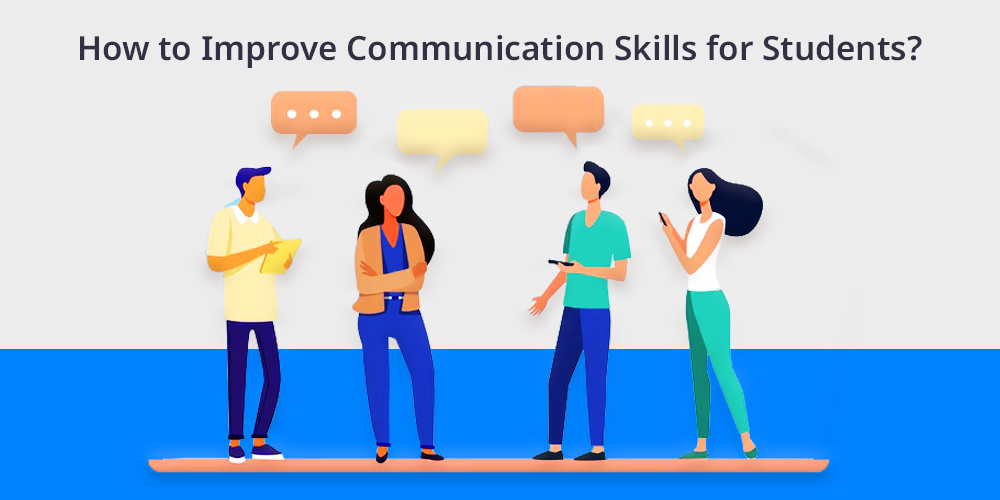
Communication has always been important, but the next decade is going to transform how students connect, collaborate, and express themselves. As classrooms become more digital, global, and AI-powered, strong communication won’t just be helpful. It’ll be non-negotiable.
Today’s students aren’t just preparing for exams. They’re preparing for a world where ideas matter more than memorization, where teamwork happens across screens and continents, and where clarity can make the difference between being understood and being ignored.
This cluster blog explores the essential communication skills students must build to thrive in school, future workplaces, and a world shaped by rapid technological change.
1. Clear Speaking: Expressing Ideas with Confidence
Whether it’s presenting in class, leading a group discussion, or speaking in a virtual meeting, students need the ability to express their thoughts clearly.
Students who master speaking skills can:
- Present ideas without hesitation
- Explain concepts in simple words
- Adjust their tone based on the audience
- Speak confidently in front of others
Speaking clearly gives students a voice that stands out in the digital age.
2. Strong Writing Skills for a Hyper-Digital World
Writing is no longer limited to essays. Students now write emails, messages, notes, applications, and collaborative documents almost every day. As AI tools become more common, students need writing skills that show personality, structure, and clarity.
Students benefit from learning:
- How to write concisely
- How to communicate professionally online
- How to edit their own work
- How to use AI tools responsibly without losing originality
Strong writing is a major part of future communication.
3. Active Listening: A Skill Most Students Ignore
Listening is half of communication, yet it’s often overlooked. In a world filled with distractions, students who listen attentively stand out.
Active listening means:
- Paying attention without interrupting
- Understanding before responding
- Asking thoughtful follow-up questions
- Respecting different viewpoints
Active listeners make better teammates, better leaders, and better problem-solvers.
4. Interpersonal Skills: Connecting with People, Not Just Screens
Future workplaces will expect students to work in culturally diverse teams. Interpersonal skills help students build meaningful connections both online and offline.
These skills include:
- Empathy and emotional awareness
- Positive body language
- Respectful communication
- Conflict resolution
Interpersonal strength is what turns communication into collaboration.
5. Digital Communication: Knowing How to Speak Online
Most student communication now happens on screens — messages, school portals, video calls, email, chats, and discussion threads. Digital communication is the new classroom language.
Students must learn:
- Writing clear, respectful emails
- Speaking confidently in virtual meetings
- Choosing the right words online
- Understanding tone without emojis or facial cues
Good digital communication supports healthy digital habits and digital discipline.
6. Critical Thinking in Communication
Good communicators don’t just talk. They think before they share. With AI-generated content everywhere, students need strong critical thinking to evaluate what they say and what they read.
Students should learn to:
- Identify misinformation
- Question sources
- Analyze AI-generated answers
- Form independent opinions
This links directly to future-ready skills like AI literacy and responsible tech use.
7. Storytelling: The Secret Skill Behind Great Communicators
The most memorable communicators are storytellers. Whether it’s a small example or a big idea, storytelling helps students express thoughts in engaging ways.
Storytelling teaches students to:
- Structure information clearly
- Use relatable examples
- Make people care
- Communicate with impact
It turns information into connection.
8. Collaboration-Based Communication
Group projects are becoming more common because collaboration is the backbone of modern work. Communication fuels effective teamwork.
Students learn to:
- Share responsibilities fairly
- Communicate ideas respectfully
- Provide helpful feedback
- Work with different personalities
Collaboration strengthens leadership.
9. Presentation Skills: Blending Voice, Visuals, and Confidence
Presenting ideas is becoming a core skill in education and the workplace. Even with AI tools assisting in design, students must know how to deliver a message with clarity and presence.
Good presenters:
- Use simple visuals
- Explain ideas step-by-step
- Stay calm under pressure
- Connect with the audience
Presentation skill is future communication in action.
10. Cross-Cultural Communication: Learning to Communicate Globally
Students of today will work with people across countries and cultures. Understanding global communication norms gives students a meaningful advantage.
Cross-cultural communication includes:
- Learning cultural dos and don’ts
- Respecting diverse perspectives
- Using universally clear language
- Avoiding assumptions
Global communication is becoming an essential student skill.
Final Thoughts
Communication is one of the few skills that no technology, no AI system, and no automation can replace. Students who master clear speaking, strong writing, digital etiquette, active listening, and interpersonal understanding will be far better prepared for the future than students who rely only on academics.
Strong communication ties directly into future-ready skills like AI literacy, digital habits, emotional intelligence, and critical thinking — making it one of the most powerful qualities a student can develop in the next decade.
